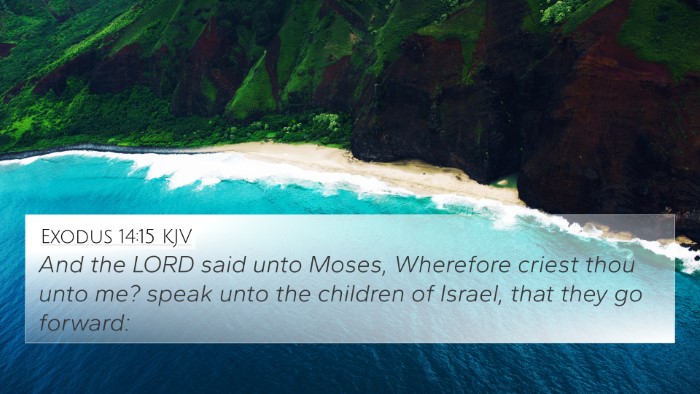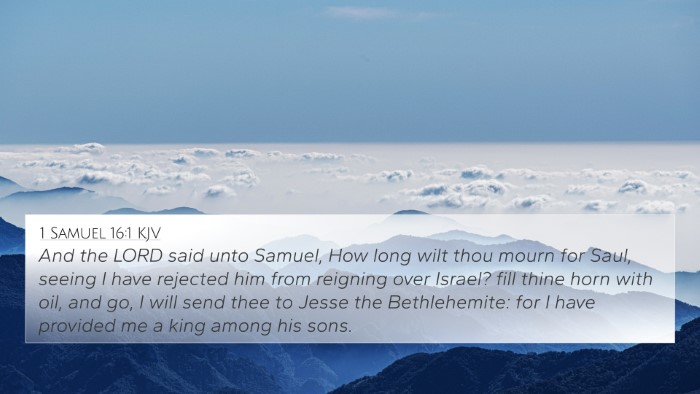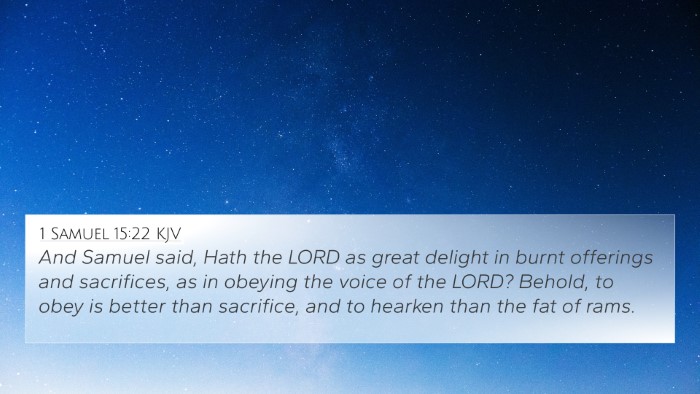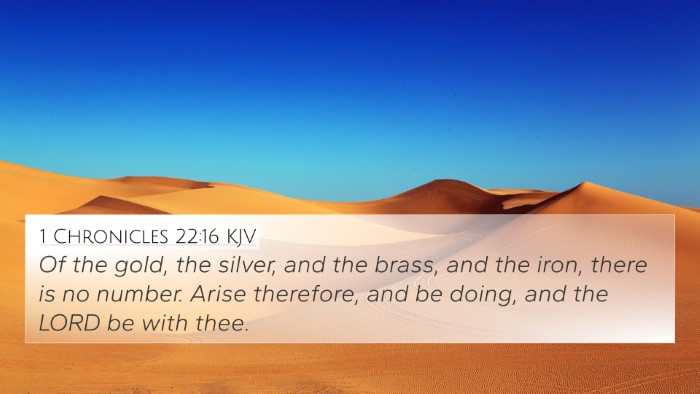Understanding Joshua 7:10
Joshua 7:10 states, "And the LORD said unto Joshua, Get thee up; wherefore liest thou thus upon thy face?" This verse comes at a critical juncture in the narrative of the Israelites' conquest of Canaan, illustrating a moment of divine rebuke and imparting key insights into God's expectations of His people.
Context and Setting
In this chapter, we find the Israelites reeling from a sudden defeat at the city of Ai after their previous victory at Jericho. Joshua, the leader, is disheartened and distraught, crying out to God in prayer, seeking understanding and direction. The verse signifies God's response to Joshua's lamentation and reveals the gravity of the situation.
Commentary Insights
-
Matthew Henry:
Henry notes that God's command to Joshua to "get thee up" reflects the necessity of action over despair. He emphasizes the importance of rising up after defeat, implying that God's work must continue despite setbacks. The act of lying on one’s face in prayer is portrayed positively, yet here it suggests a delay in addressing the underlying issues causing the defeat.
-
Albert Barnes:
Barnes emphasizes that God was addressing the root cause of Israel's failure, which stemmed from sin within the camp, specifically Achan's transgression. Barnes highlights that Joshua’s spiritual posture, instead of leading to revelation, needed divine instruction on the nature of the problem—a pivotal lesson in leadership and communal integrity.
-
Adam Clarke:
Clarke discusses the broader implications of God's rebuke. He elucidates that God's call to Joshua was not just for the moment but served as a reminder of accountability. Joshua was called to lead the people effectively, which involves not just seeking God in prayers during distress but also addressing issues that provoke God’s anger.
Thematic Connections and Cross-References
This verse is rich in thematic connections and reveals several underlying principles throughout the Bible. Here are some Bible cross-references related to Joshua 7:10 that further illuminate its meaning:
- Numbers 32:23: "But if you do not do this, you will be sinning against the LORD; and you may be sure that your sin will find you out." This verse establishes the principle that sin does not go unnoticed by God.
- Psalm 66:18: "If I had cherished sin in my heart, the Lord would not have listened." This reinforces how unconfessed sin can hinder our communication with God.
- Isaiah 59:1-2: "Surely the arm of the LORD is not too short to save, nor his ear too dull to hear. But your iniquities have separated you from your God." This demonstrates that our sins create a separation that can lead to spiritual defeat.
- 1 John 1:9: "If we confess our sins, he is faithful and just and will forgive us our sins and purify us from all unrighteousness." This shows the pathway back to restoration after heartfelt recognition of sin.
- Proverbs 28:13: "Whoever conceals their sins does not prosper, but the one who confesses and renounces them finds mercy." This connects the truth that acknowledgment of wrong leads to God's favor.
- Hebrews 12:1: "Therefore, since we are surrounded by such a great cloud of witnesses, let us throw off everything that hinders and the sin that so easily entangles." This highlights the necessity of removing sin to move forward in faith.
- Galatians 6:7: "Do not be deceived: God cannot be mocked. A man reaps what he sows." A reminder that our actions, be they righteous or sinful, have corresponding consequences.
- Revelation 3:19: "Those whom I love I rebuke and discipline. So be earnest and repent." This emphasizes that rebuke from God is a sign of His love and desire for our correction and growth.
- Jeremiah 29:13: "You will seek me and find me when you seek me with all your heart." A call to pursue God sincerely, especially when faced with challenging circumstances.
- Matthew 7:7: "Ask, and it will be given to you; seek, and you will find; knock and it will be opened to you." This illustrates the importance of seeking God's guidance in times of trouble.
Conclusion
Joshua 7:10 serves as a profound lesson about accountability, the cost of sin, and the necessary return to God in times of struggle. It highlights how God desires an active, engaged relationship with His people, urging them to rise, confront issues head-on, and seek restoration. This not only applies to Joshua but resonates deeply across all of Scripture, reinforcing the intertwined nature of our spiritual journeys and God's unwavering hope for our redemption.
Using Cross-References Effectively
As you study Joshua 7:10, consider employing various tools for Bible cross-referencing such as a Bible concordance or a Bible cross-reference guide. These resources can aid in uncovering deeper thematic connections among Bible verses that relate to each other, enhancing your understanding of Scripture. Engaging in cross-referencing Bible study methods can provide invaluable insights and foster a more profound spiritual awareness.






